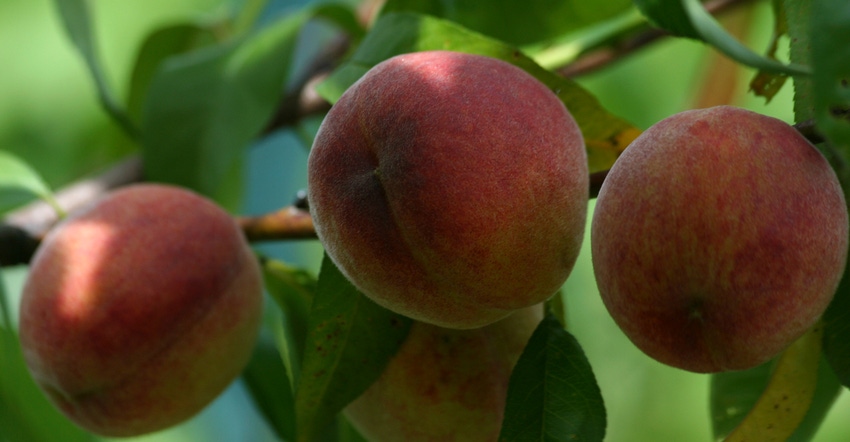
Will peach trees grow in Nebraska? The short answer to this question is “yes.” They will grow in Nebraska, but the likelihood of peach trees producing a consistent crop probably depends on where in the state you are planting them.
The best results come from the southeast portion of Nebraska, which is a traditional orchard area, while peach-producing conditions get a lot tougher in the northwest or even northeast parts of the state. That’s what we heard from retired, well-known orchardist Vaughn Hammond.
“The issue is if the flower buds will go to fruit,” Hammond says. “You might go 12 years and produce a peach crop every year, but then go three years with no peaches. It depends on the low temperatures.”
Hammond says low temperatures that hit below 15 degrees F for a period could dictate if the flower buds make it to produce fruit. If the temperatures get down to minus 20 degrees, for instance, early in the winter, they might still make it. But if those really low temperatures are typical closer to early spring, it gets tougher for sure.
Best varieties
The Redhaven peach variety is the standard bearer for the Midwest, Hammond says, and most other varieties gauge themselves according to the maturity dates of Redhaven. This variety produces luscious, high-quality fruit, and is a top producer of large peaches that ripen in July.
Insect pests can also be a challenge with growing peaches, Hammond says. Threats include the greater and the lesser peachtree borers, with the greater attacking primarily young and nonbearing or unmanaged trees at or below the soil line — and the lesser hitting older trees, and working in the scaffold limbs, branches and trunk above the ground.
Growers can decide if they are happy with a luscious peach crop only one out of every five years, because that may be the result — depending on the micro-climate conditions at the planting site, along with local temperature swings to the extremes.
Planting sites in southeast Nebraska most likely offer the best conditions for growing peaches in the state. Learn more by contacting your local tree nursery or certified arborist.
About the Author(s)
You May Also Like






